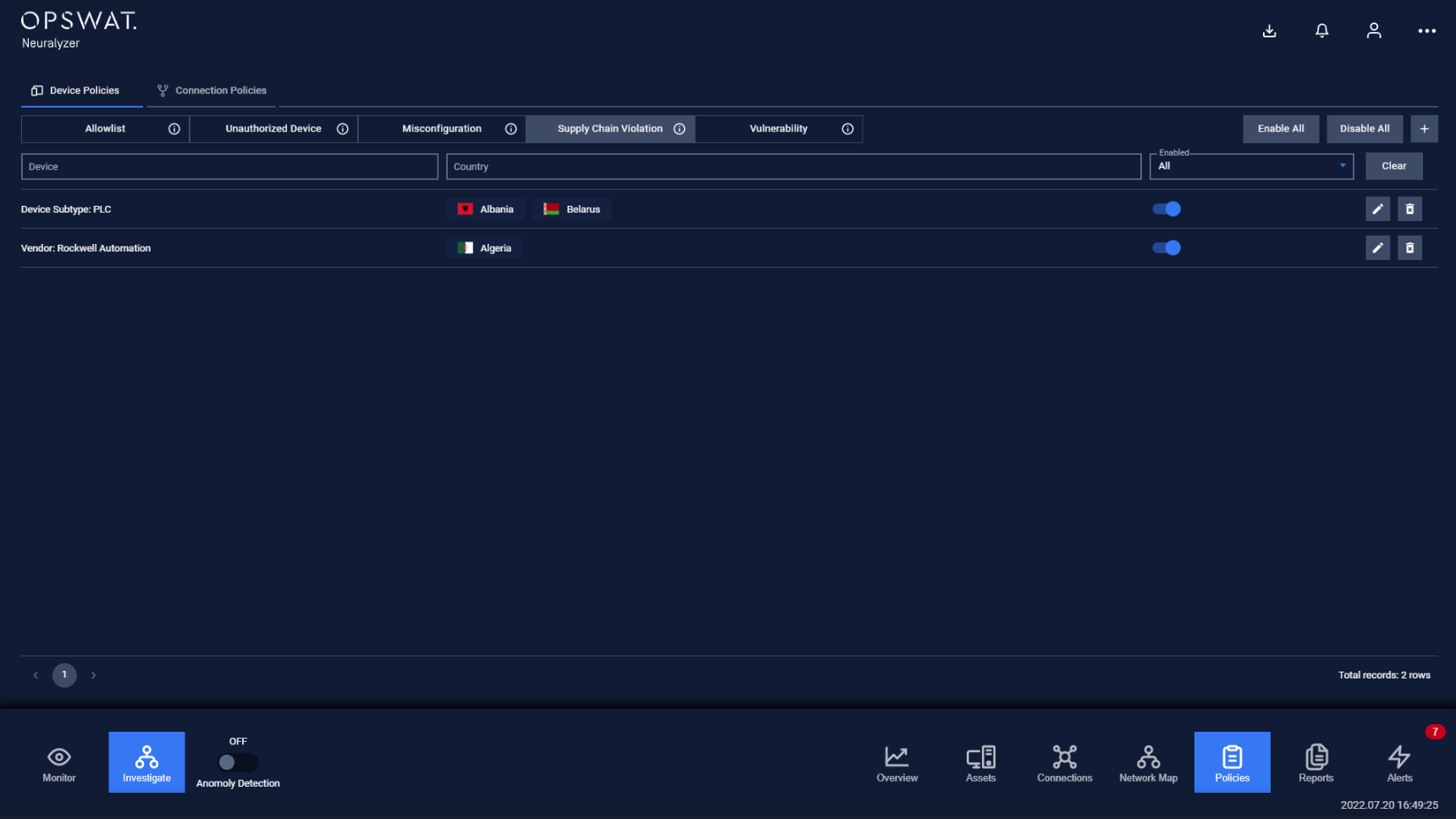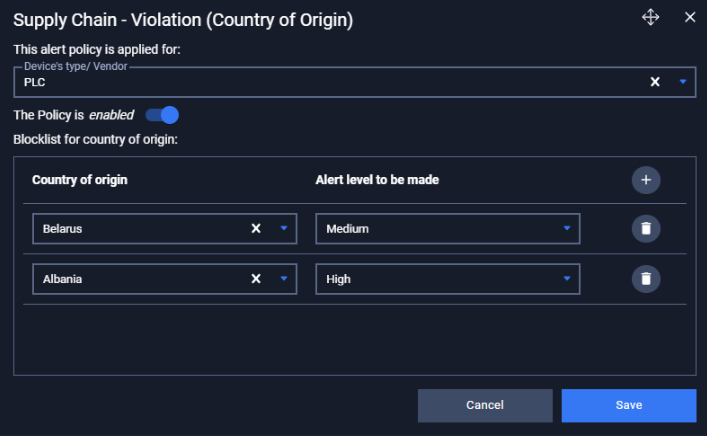The supply chain violation is accessible under Policies → Device → Supply Chain Violation.
The supply chain violation page contains a list of device with country of origin of nics (COO) policies that are not allowed to connect to the system.

Any COO that are listed in the this policy will make Neuralyzer trigger an alert when the device have that COO.
Each record in the device list also contains additional rules about:
- The device type/subtype or vendor.
- The country of origin that is not allowed.
Supply chain violation policies are added manually by the user.
Note: The blocklist policy can be detected even user didn’t turn on Anomaly Detection.
Actions on Supply Chain Violation policies
1. View policy
Supply Chain page is paginated, each page contains 20 records, the total number of policy records is displayed at the bottom of the list
Policies are displayed in a list, each record contains the following information:
- Device: device type/subtype or vendor.
- COO: country of origin of NICs.
2. Create a new policy

You can create a new policy by tapping on button “+” on the top right of the Policy screen, a policy creation pop-up will appear
| Field | Type of input | Note |
|---|---|---|
| Device | Choose from drop-down list Input device name (support searching by device’s name and IP) | |
| Enable/Disable policy option | Tap to turn on policy | Once disabled, the policy will not be applied. |
| COO | Choose from drop-down list Input country name. | |
| Criticality | Choose from drop-down list | Alert criticality |
Note: Create duplicate policy is not allowed.
3. Edit policy
You can edit a policy by tapping on “Edit” button on the right of each policy record, a policy editing pop-up will appear.
In the pop-up editing, you can see the detail policy. You can edit by clicking on the field to be edited and perform input operations like when creating a policy.
Note: Field IP, MAC and Source of rule are non-editable .
When finished editing, click “Save” to save the changes or “Cancel” to discard all.
4. Search policy
Searching feature for policy list is located at the top of the policy page.
You can search on one or more fields of the policy, just input value onto one or more fields.
Click the “Clear” button to clear the values in the filters.
5. Remove policy
You can remove a policy from the list by clicking the "Delete" button on each the policy record.

